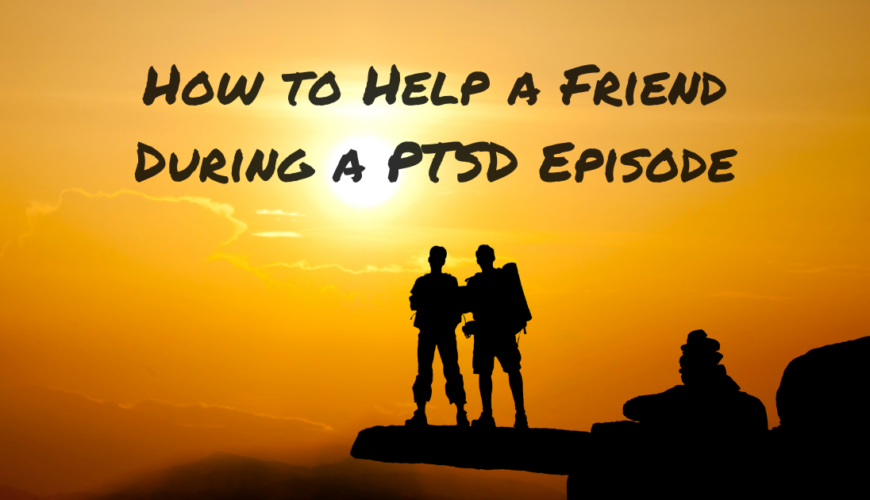Nearly everyone can recall some bad memories that they would prefer to forget about. Part of being human is experiencing ups and downs, good times and bad. However, traumatic events can have a lasting impact on our mental health. You may be familiar with PTSD, or post-traumatic stress disorder. This common mental health disorder is a result of witnessing or experiencing a traumatic event, and the effects of this condition can impact an individual’s day to day life. If you have a loved one who is battling PTSD, it is important to know what to do to best support them.
What is a PTSD Episode?
An intense symptom of PTSD is often referred to as an episode. When this occurs, an individual may feel a sense of disassociation as if they are detached from their own body. Their mind may wander back to the traumatic event in a graphic and frightening way; this is called a flashback and can occur in the form of nightmares or hallucinations. Sensory experiences such as visions and sounds relating to the trauma may occur as well. Feelings of anxiety may occur as well as an individual’s body may perceive danger, leading to a racing heartbeat, heavy breathing, and sweating.
How to Help a Friend
If your friend is experiencing a PTSD episode, it is important to understand what you can do to help them recover. It may be helpful to remind them gently that they are not actually in any danger and that the traumatic event they are imagining is in the past, not the present. Reminding them of their surroundings as a grounding technique may help calm them down as well and recognize that they are safe. An effective and easy way to do this is to simply point out objects in the room so they are aware of their actual current surroundings.
As feelings of anxiety can lead to rushed breathing, implementing a slow breathing technique with your friend may help calm them down as well. You may feel inclined to hug your friend during their time of distress, but it is important to ask them before doing so. Avoiding sudden movements and giving them physical space unless they consent to touch will prevent you from startling your loved one.
Above all else, be sure to listen to your loved one if they choose to open up to you about their experience. PTSD is a common disorder that affects millions of people, and there is no shame in dealing with it. By offering moral support, a listening ear, and kindness, you may help a loved one manage their PTSD more than you realize.
If you or a loved one is living with PTSD, consider a clinical trial with Preferred Research Partners. You may be eligible to receive care at no cost to you and contribute to the advancement of medical research!



